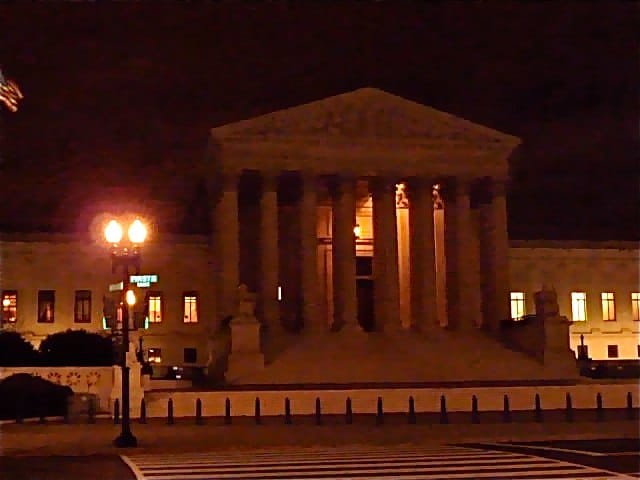Fifth Circuit Interprets Copyright Termination and Renewal Provisions to Apply Worldwide
In recent years, the U.S. Supreme Court has relied increasingly on the presumption against extraterritoriality to determine the geographic scope of federal statutes. This presumption seems particularly strong for intellectual property statutes. Most recently, the Court strictly applied the presumption against extraterritoriality to the Lanham Act (the federal trademark statute) in Abitron Austria GmbH v….
Continue ReadingTrademark Infringement and Exports after Abitron
Two years ago, in Abitron Austria GmbH v. Hetronic International, Inc. (2023), the Supreme Court applied the presumption against extraterritoriality to the federal trademark statute (the Lanham Act), holding that the Act applies only to domestic conduct. Abitron involved imports. Products bearing an infringing trademark were made abroad, some of which were sold, directly or…
Continue ReadingAbitron on Remand
Last year, in Abitron Austria GmbH v. Hetronic International, Inc., the Supreme Court held that the federal trademark statute—known as the Lanham Act—applies only to domestic conduct infringing U.S. trademarks. A group of Austrian and German companies collectively known as “Abitron” placed U.S.-protected trademarks owned by a U.S. company, Hetronic, on products made in Europe. Some of…
Continue ReadingDistrict Court Permits Clean Air Act Action Against Canadian Company
The presumption against extraterritoriality is the principal tool that U.S. courts use to determine the reach of federal statutes. Last year, in Abitron Austria GmbH v. Hetronic International, Inc. (2023), the U.S. Supreme modified the presumption by requiring conduct relevant to a provision’s focus to occur in the United States in order for the application…
Continue ReadingThe Extraterritorial Reach of Criminal Statutes
When federal statutes do not indicate how far they reach, courts apply a presumption against extraterritoriality to limit their geographic scope. Last year, in Abitron Austria GmbH v. Hetronic International, Inc. (2023), the Supreme Court revised the presumption by requiring conduct in the United States for a statute’s application to be considered domestic. Meanwhile, lower courts…
Continue ReadingSupreme Court Denies Cert in Extraterritorial Wire Fraud Case
The Supreme Court denied cert this morning in Elbaz v. United States, a case involving the extraterritorial reach of the federal wire fraud statute. The order lets stand a decision of the Fourth Circuit holding that the wire fraud statute could be applied to a scheme to defraud investors centered in Israel based on two…
Continue ReadingWill the Supreme Court Resolve the Circuit Split on the Geographic Scope of Wire Fraud Statute?
The federal wire fraud statute is a workhorse for federal prosecutors. In 2021, there were more than 4,500 federal prosecutions for fraud, theft, or embezzlement, constituting 8% of federal criminal cases. The wire fraud statute is particularly important in transnational fraud cases, because communicating with people in the United States using U.S. wires is considered…
Continue ReadingThe New (Old) Presumption Against Extraterritoriality
The reach of U.S. law keeps changing. For decades—in fact, off and on for more than a century—U.S. courts have turned to the presumption against extraterritoriality to determine the geographic scope of federal statutes. When the presumption changes, so does the reach of U.S. law. And the presumption has changed a lot lately. Most recently,…
Continue ReadingSupreme Court Roundup (October Term 2022)
During its 2022 Term, which ended four weeks ago, the Supreme Court decided five cases with important implications for transnational litigation. The questions included whether the Foreign Sovereign Immunities Act (FSIA) applies to criminal proceedings; the standard for aiding and abetting under the Anti-Terrorism Act (ATA); whether states may exercise general personal jurisdiction over foreign…
Continue ReadingAbitron Eliminates Circuit Tests but Causes More Confusion
During the oral argument in Abitron Austria GMBH v. Hetronic International, Inc., Justices Alito, Sotomayor, Gorsuch, and Barrett all expressed concern over whether the Court should overrule its 1952 decision in Steele v. Bulova Watch Co (1952). A reader of the Court’s majority decision by Justice Alito might be surprised to see that the majority…
Continue Reading








